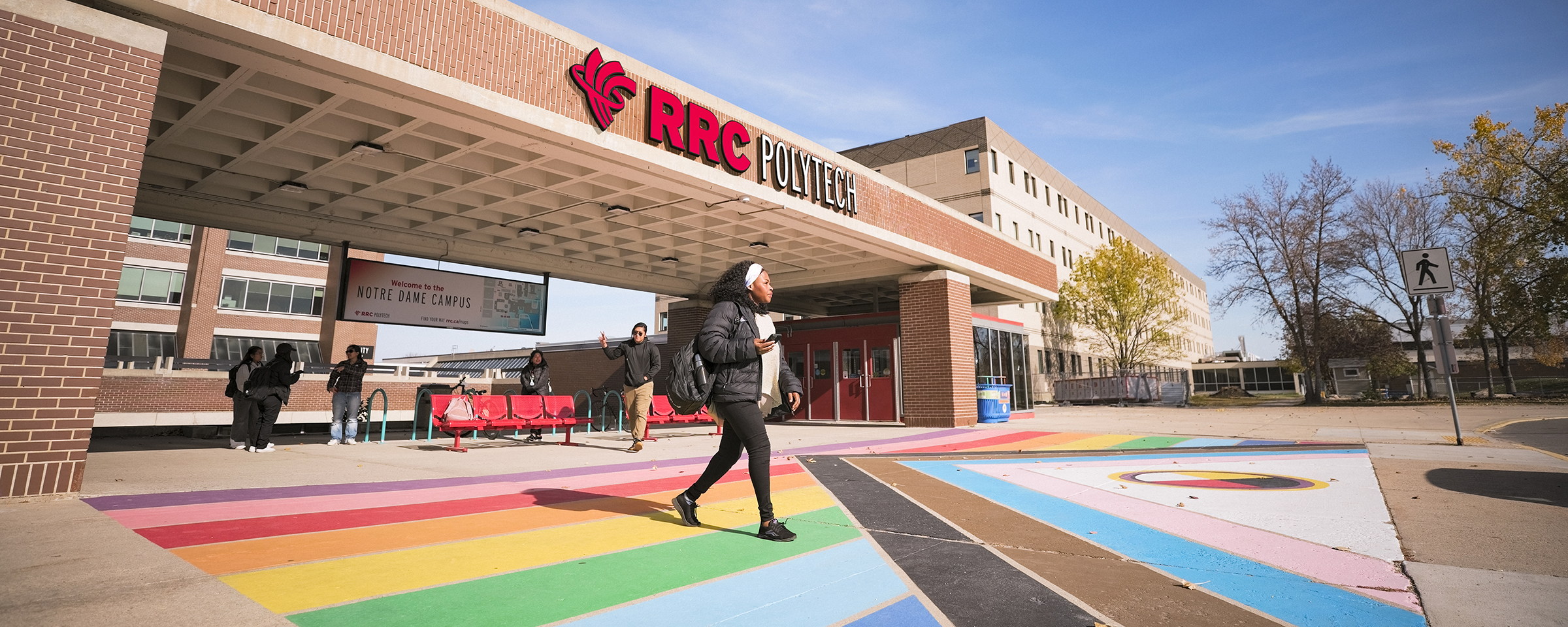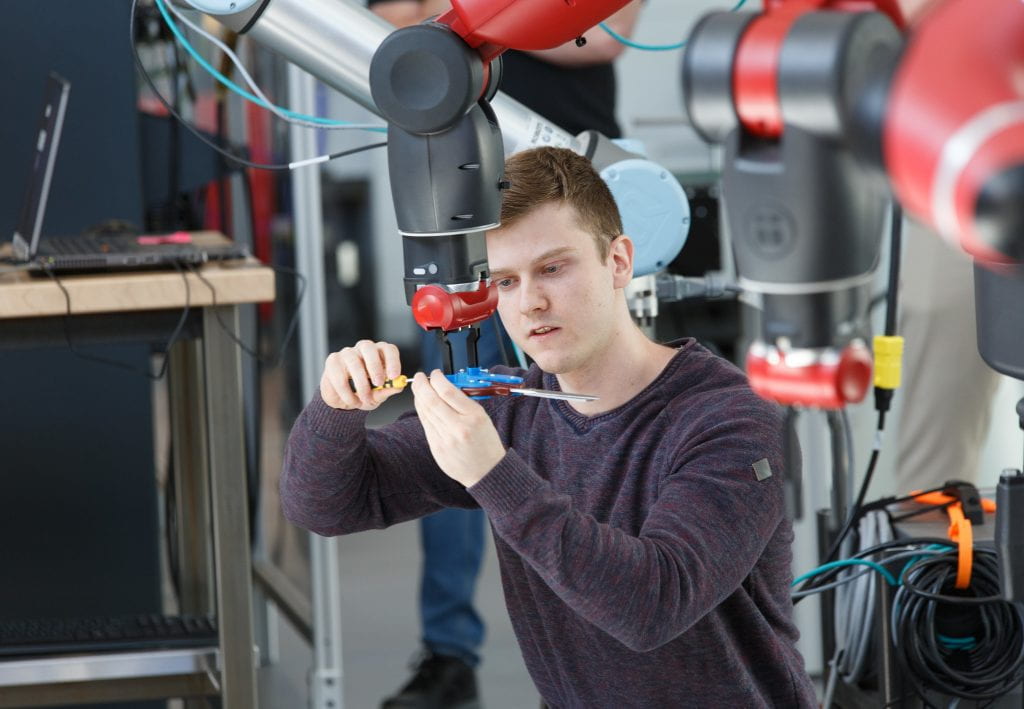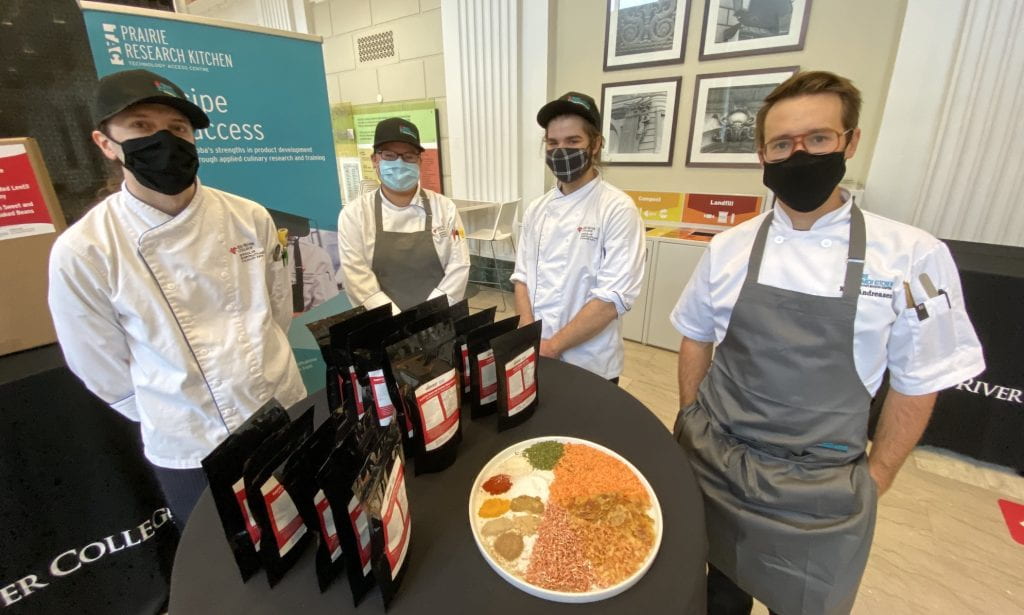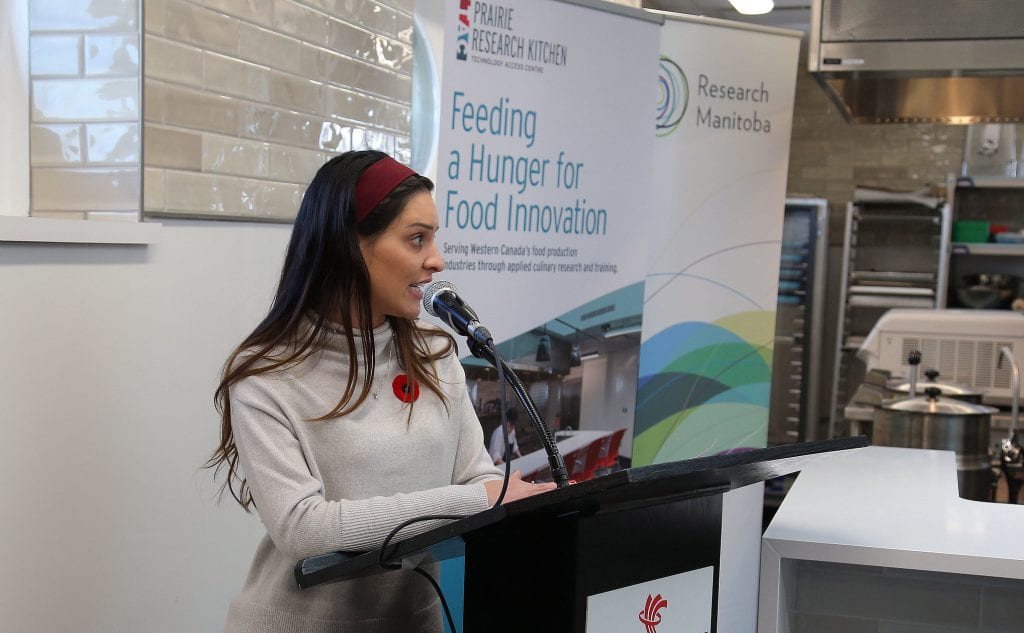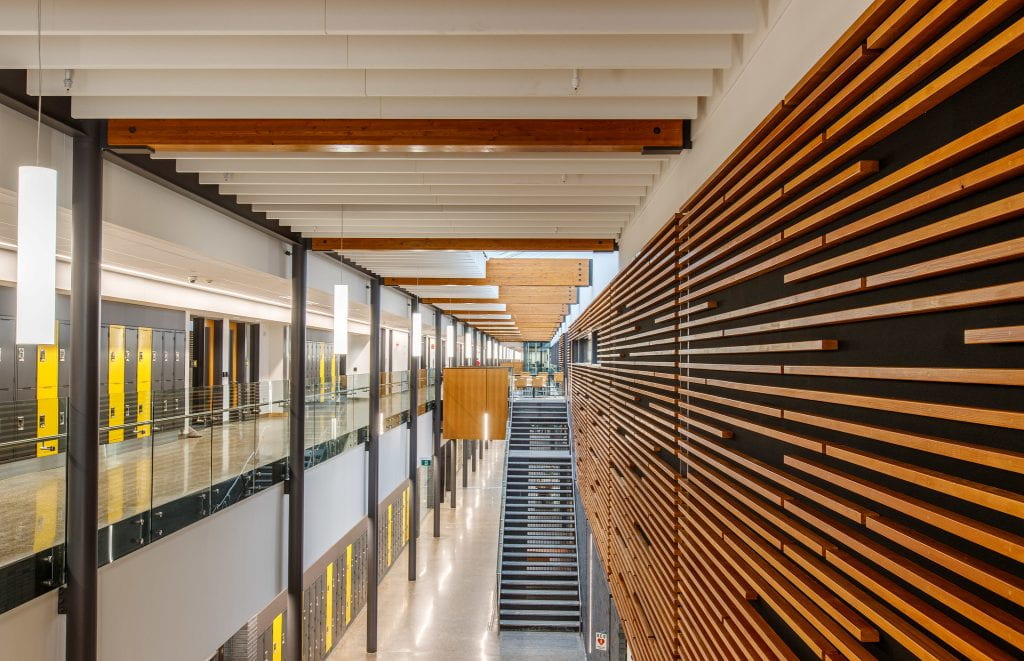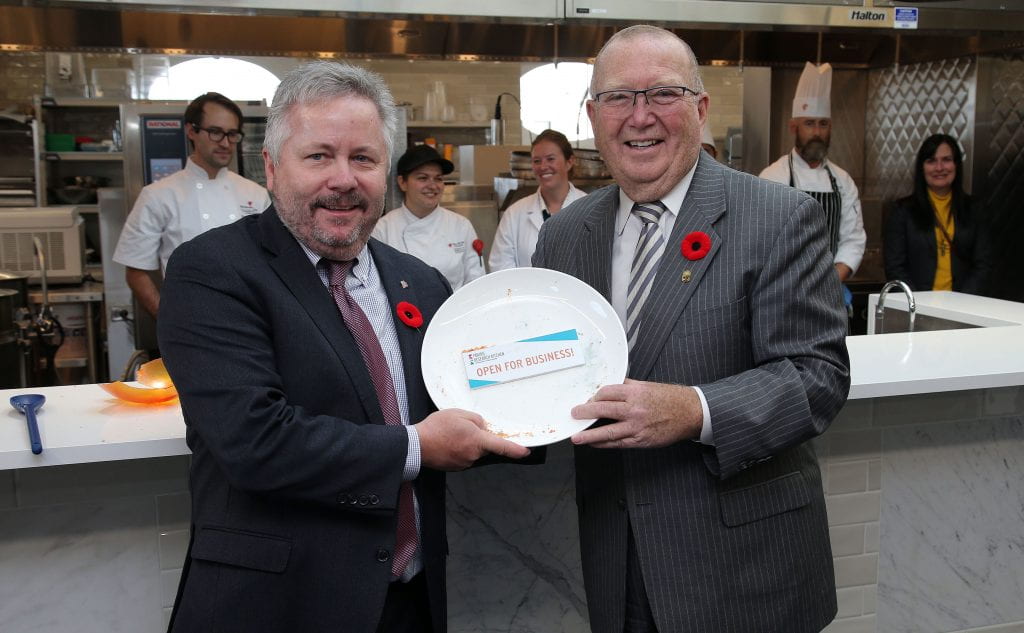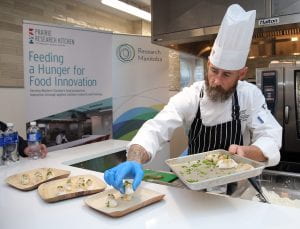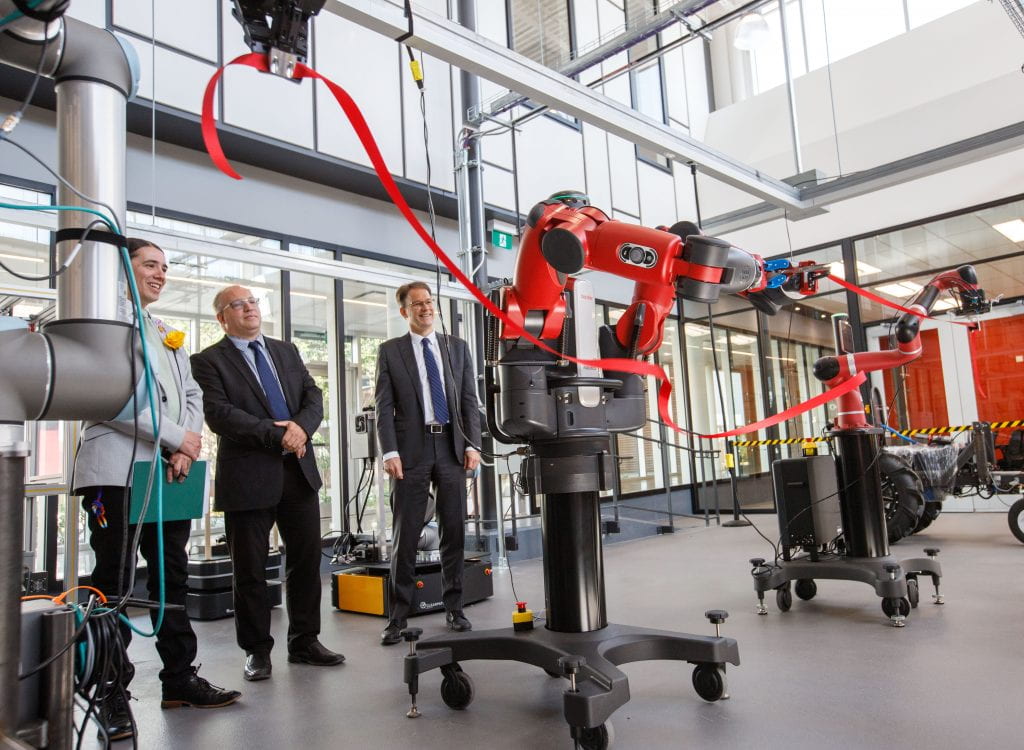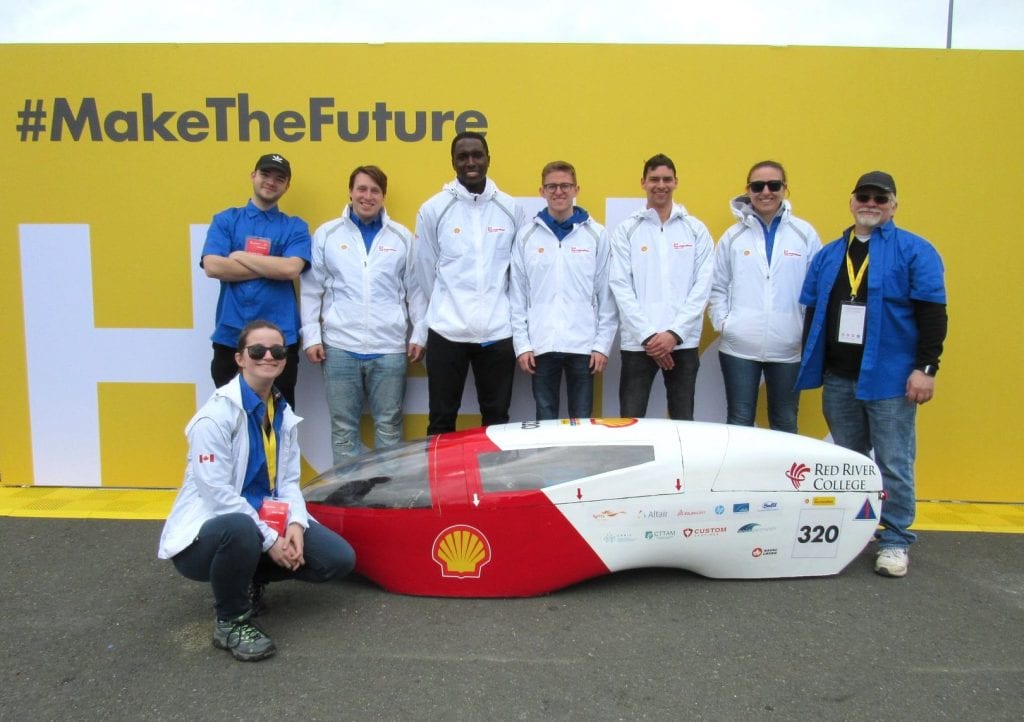Robots, rapid prototyping and R&D: College’s applied research enterprise ranks among Canada’s best
Red River College is one of Canada’s top five research institutions, as announced today by Re$earch Infosource in their annual ranking of the country’s top 50 research colleges.
The list saw RRC, Manitoba’s only polytechnic, jump nine spots from its placement at 14th last year. This is the highest the College has placed since coming in second in 2011.
“Red River College is a world-class institution that makes significant impacts to applied research every day, thanks to industry-driven partnerships and projects,” says RRC President Fred Meier. “Our research enterprise has been making a difference for more than 15 years, and this recognition is a testament to the contributions of our hard-working staff, students and faculty.”
Today’s announcement recognizes RRC’s work during the 2018/19 fiscal year, during which the College completed 105 research projects and employed 37 students for work that falls within the College’s four main research areas: advanced design and manufacturing, clean technology, digital technologies, and health, nutrition and social sciences.
Key projects include an ongoing partnership with Prairie Fava, a start-up business based out of Glenboro, Manitoba that promotes fava flour as a protein-rich gluten alternative; supporting Manitoba’s aerospace and manufacturing sector with an expanding fleet of “cobots” or collaborative robots; and helping to launch the “Genome 360” project with Genome Canada and a network of partners, with the goal of building a hub for genomics and phenomics capabilities in Manitoba.
The news comes on the heels of RRC’s recent silver win at the World Federation of Colleges and Polytechnics (WFCP) Awards of Excellence, held in a virtual ceremony on Nov. 29.
“Our work in applied research has an immediate impact and is needed now more than ever,” says Meier. “Being recognized on a national and international level not only reinforces our continued success, but recognizes the immense talent and expertise that we have at the College. Our ongoing collaboration with business and industry means that we’re solving problems and creating new and innovative solutions every day, and I invite industry to come work with us to experience first-hand what we have to offer. Read More →
